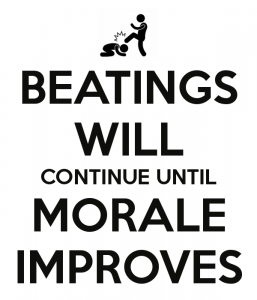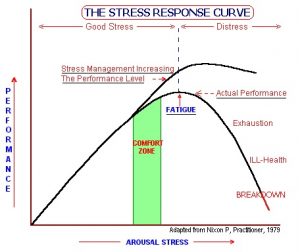The problem with annual budgets, especially in larger organizations is the stress it places on mid-level managers. Their productivity this month and next will go down as they are focused on creating targets that will be accepted by management's goldilock zone. The justification to involve the managers is to create buy-in to the goals and shared accountability to their results. Unfortunately it can become nothing more than a way for the upper-management to place the blame and hurt current business.
The forecasting over 30 days becomes difficult for a number of reasons.
1. If you rely on a model you start forecasting a forecast, this can easily veer off track - especially if you were wrong initially
2. When your time period is that long you will have lurking variables that will impact your results that you can't plan for in a specific month.
- A new same-make store opening up in your AOR, a key manager leaving, supply constraint
3. Large industry wide or OEM forecasts aren't necessarily relevant to an individual dealer, plus they take national data into account that are largely unavailable at a local level, or hard to get for 1 organization. These include things like:
- The ability for customers to pay including, unemployment, disposable income and demographic data
- Availability of credit, interest rates and consumer debt
- Consumer motivation, gas prices, etc.
I think the best approach for annual forecasting for an individual dealership is to follow these best practices:
1. Don't stress out the managers that are making the cash register ring. This causes a loss in sales in the present and will cause resentment in the future.
2. Understand you don't have the same tools as the OEMs so stop trying to copy them.
3. Take a blended approach with a seasonally adjusted monthly sales forecast and a strategy based on registrations by zip code
4. Focus your annual planning on the variables that drive the results more than setting a made-up target. Understand if you get ahead of your target or behind it your team can lose motivation...
So should you do them, yes as long as they are for the right reasons.




 .....that shit never changed.
.....that shit never changed. 



